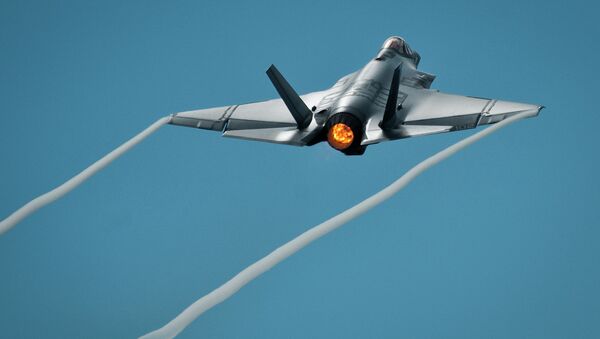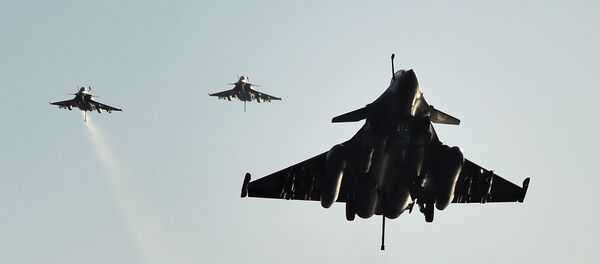Retired British General Richard Barrons, who resigned from his post in April, issued a 10-page memo to Defense Secretary Michael Fallon before stepping down chronicling his concern that Russia could look to kill all 40 UK pilots capable of flying the F-35 in order to degrade Britain’s air capabilities.
The purpose of the report appeared to be a criticism of the British military’s failure to provide a sufficient number of trained personnel relying too heavily on technological innovation rather than a skilled fighting force, but the report also singles out Russia as a potential adversary in a full-scale war.
"The current Army has grown used to oprating from safe bases in the middle of its operating area, against opponents who do not maneuver at scale, have no protected mobility, no air defense, no substantial artillery, no electronic warfare capability, nor – especially – an air force or recourse to conventional ballistic or cruise missiles," state the memo suggesting the UK would have difficulty transitioning from its counterterrorism posture to a conventional warfare situation.
General Barrons said that the British military is “by design” undermanned and underprepared for a substantial conventional war scenario and he criticized the massive expense of aircraft carriers and F-35 fighter jets (at a cost of nearly $200 million per aircraft) while the soft underbelly of the UK’s military is the lack of personnel.
The General suggests that rather than Russia contriving a way to shoot down the vaunted stealth fighter jet, which has been plagued with a number of mechanical issues that call into question whether it will live up to the hype, but rather such an adversary need only "know how to murder in their beds" all 40 pilots capable of flying the fifth-generation warplane.
Use of the mystical threat of Russian aggression in order to justify increases in defense spending and military expansion have become a common refrain throughout the world used by the United States and the UK as well as NATO partners such as Poland which leveraged Russophobia to secure massive military appropriations during the defense alliance’s summit in Warsaw.




